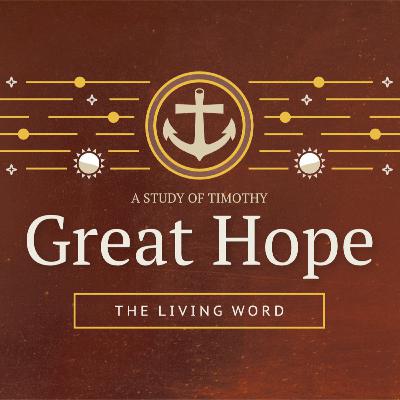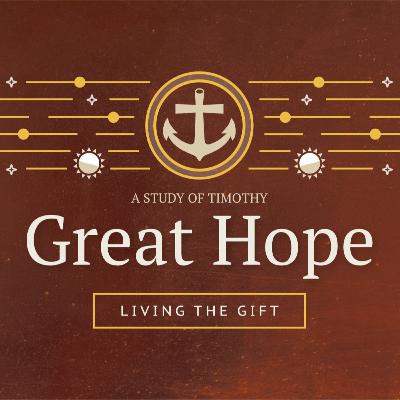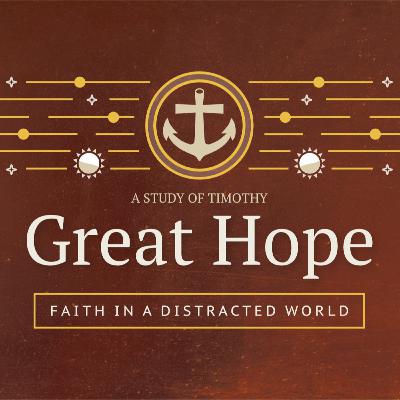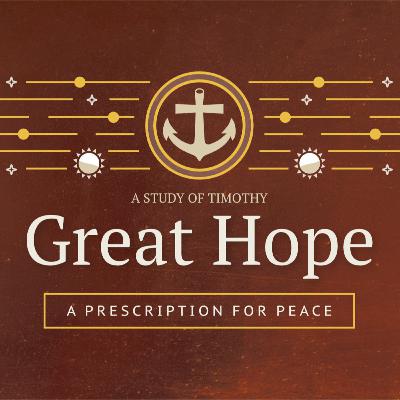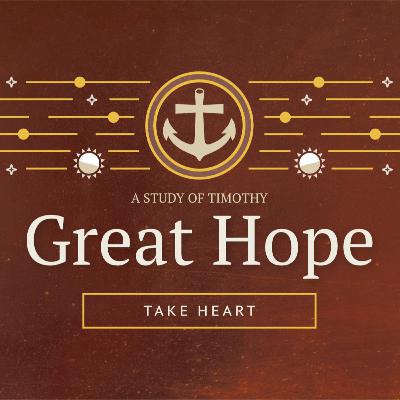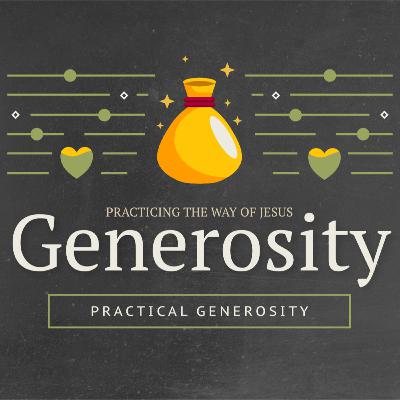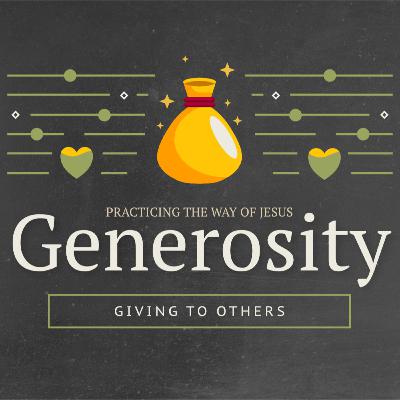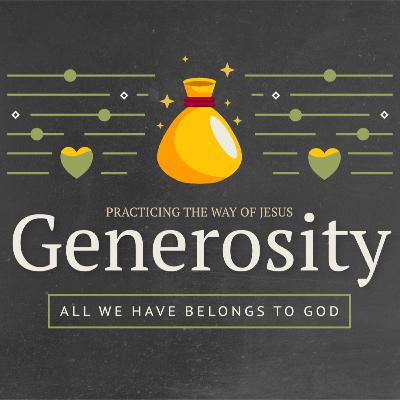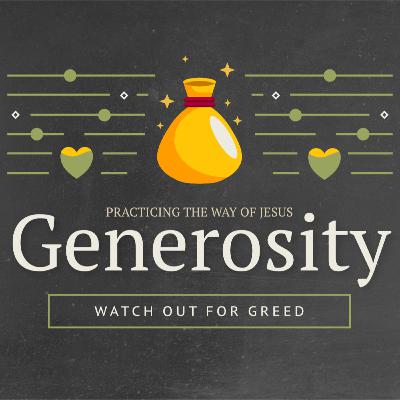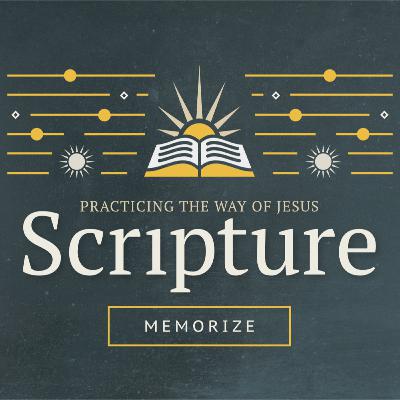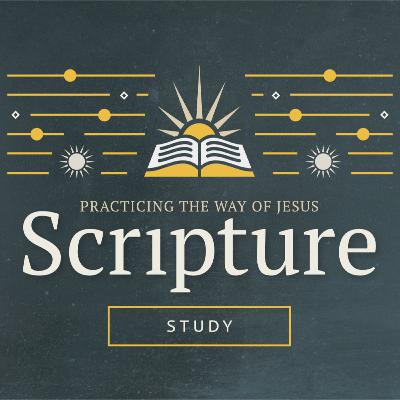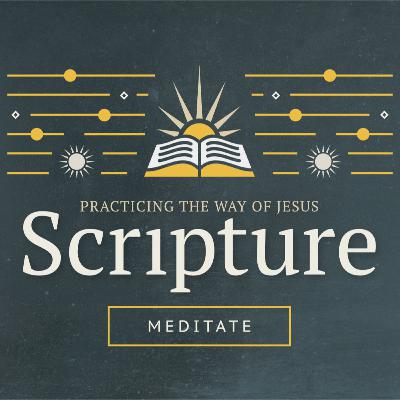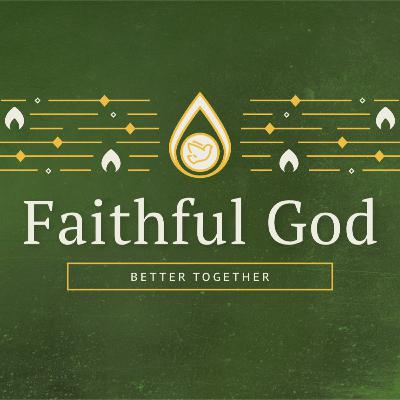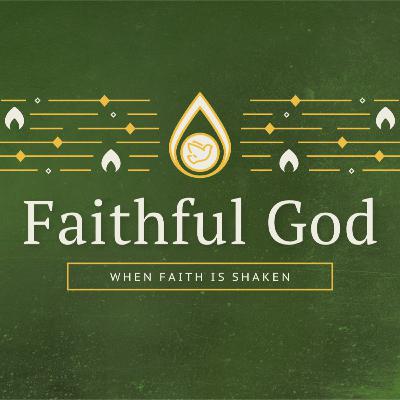Discover Emmaus Road Church | Fort Collins, Colorado
Emmaus Road Church | Fort Collins, Colorado

Emmaus Road Church | Fort Collins, Colorado
Author: Emmaus Road Church | Fort Collins, Colorado
Subscribed: 4Played: 60Subscribe
Share
© Emmaus Road Church | Fort Collins, Colorado
Description
Emmaus Road Church in Fort Collins, Colorado seeks to be formed as followers of Jesus through faith practices, community, and liturgy. We desire to work for justice, love, peace, and hope as demonstrated through the life and teachings of Jesus.
604 Episodes
Reverse
Sermon Scripture: 2 Timothy 3:14-4:5How often, when we open Scripture, do we feel like we’re just wandering through empty ruins? We explore a landscape that feels old and strange, collections of odd stories, confusing poetry, and names that feel like tongue twisters. But then, somewhere in the midst of that apparent ruin, we catch movement and light beneath the surface. We sense a presence and signs of life and breath. And we realize that these ruins are inhabited. The old house of Scripture is still alive and we are being invited to move in and take up residence there.
Sermon Scripture: 2 Timothy 2:1-15Sometimes we just want to feel sorry for ourselves. Our circumstances are hard, we didn’t get the promotion, another unexpected bill, someone treats us badly, or we are just really dreading doing the thing we know we should be doing.The books of 1st and 2nd Timothy are chocked full of encouraging pep talks aimed precisely at those of us who feel this kind of weight and discouragement. This week, we are reminded to remember the WHY behind this whole life of Christian Faith.
Sermon Scripture: 2 Timothy 1:1-14This Sunday we reflect on God’s call to live with confidence and courage in the gifts He has entrusted to us. Instead of a traditional sermon, our service will weave together scripture reading, reflection, testimony, and prayer—inviting each of us to see how God’s Spirit of power, love, and self-discipline is at work in our lives. Join us for a time of worship that lifts up God’s faithfulness and encourages us to embody His hope in the unique ways we are gifted.
Sermon Scripture: 1 Timothy 4We live in a world where ideas and beliefs are valuable commodities and our loyalties and attention are being pulled in many directions. In 1st Timothy chapter 4, Paul urges Timothy—and us—to discern carefully when we are being pulled in directions that do not align with Christ. Additionally we are encouraged to train ourselves in faithfulness to the life and teaching of Jesus and to live in such a way that everything we say and do points back to Jesus.
Sermon Scripture: 1 Timothy 2:1-7There is no question that the cultural, political, and spiritual environment in which we currently live is tense and complicated, and speaking directly into this angst, scripture provides a frustratingly simple solution. It gives us a method, an action, a prescription that not only leads to common peace, but produces lives that are marked by quiet godliness and dignity.If you want to step off the treadmill of outrage and retaliation all around us, Paul says, “Pray.” Learning to stop, to lament, to resist striking back, and instead to redirect all that energy into prayer — even prayer for our enemies is the prescription to peace.
Sermon Scripture: 1 Timothy 1:12-17This Sunday we begin a new series called Great Hope from 1 & 2 Timothy. In his first letter, Paul writes to his younger friend and ministry partner, reminding him that God’s mercy is greater than failure, and His Kingdom is built on trust. Paul himself was once “the worst of sinners,” yet Christ entrusted him with the gospel, overcame his past, and turned his story into a testimony of grace. In the same way, we are invited to take heart: God’s mercy meets us where we are and empowers us to live and share His Great Hope.
Sermon Scripture: 2 Corinthians 9:6-15John Wimber once said that Faith is spelled R-I-S-K, and nowhere is that more true than in our finances. In 2 Corinthians 9, Paul reminds us that generosity isn’t a matter of waiting until life feels secure, but of planting the seeds we already hold in our hands. This week we explore the practical side of giving: when to begin, where to give, and how much . Along the way we’ll discover that generosity is not ultimately about money but about trust—an architecture of the heart built in community, where open hands lead to open hearts and the joy of giving overflows.
Sermon Scripture: Luke 12:13-34Jesus warns that bigger barns and fuller accounts cannot save us, because what we keep we eventually lose, and what we freely give away is what we end up keeping. Today we’ll remind ourselves of the freedom that comes by living generously. Then we will learn about how the early church lived this out and ask ourselves how our own daily practices of generosity can lead us into a life of true freedom, contentment, and satisfaction.And maybe, just maybe, as God’s people respond to this call, the world can become a little better, safer, satisfied, and provided for along the way.
Sermon Scripture: Luke 12:35-48In Luke 12, Jesus reminds us that all we have belongs to God. This week we’ll explore what it means to live not as owners but as caretakers—entrusted with God’s abundance to do good and to bless others. Stewardship is a way of life that teaches us to breathe in God’s generosity and breathe out blessing.
Sermon Scripture: 1 Timothy 6:6-11, 17-19When we live generously through our giving, we participate in God’s very nature of abundance, life, and joy. Today, we turn to the next theme in Jesus’ teaching on generosity where we are warned to guard our hearts against greed. We live in the most affluent generation in human history, yet so many of us are wracked by fear, worry, greed, and unsatisfied desire, all of which become fuel for greed.“Watch out! Be on your guard against all kinds of greed because life does not consist in an abundance of possessions.” Luke 12:15
Sermon Scripture: Matthew 6:19-24As Americans, we live in a nation that was founded on three ideals: life, liberty, and the pursuit of happiness—and yet, ironically we are one of the unhappiest nations in the world. It turns out that many of the things that we think will make us happy, actually don’t. And “the good life” we’re all searching for is often found in the places we least expect.Acts 20:35 recorded one of the things that Jesus’s disciples likely heard him say over and over again, “It is more blessed to give than to receive.” If you take an objective look at the empirical evidence, it’s clear that our American, western formula of “more money = more happiness” is simply not true. Instead, it really seems that Jesus's formula of “more generosity = more happiness” is the pathway to a happy life.
Sermon Scripture: Matthew 27:45-46, Psalm 22We often think of memorizing scripture as something we did in Sunday School as a kid. Something we have outgrown. But what if memorization isn’t something you grow out of, it’s something you grow into. When we hide the words of Scripture in our hearts we carry them with us in a way that allows them to become breath in our lungs, strength in suffering, and truth in uncertainty. In our modern, digital, AI crazed age, this is the kind of memory we need.
Sermon Scripture: Luke 4:1-13This week, we’ll explore what it means to truly study the Bible—and why it can sometimes leave us feeling unsettled. While Scripture can be sweet and comforting, it can also challenge us deeply, especially when it's misused or misunderstood. We'll reflect on Jesus’ temptation in the wilderness, where both he and the devil quote Scripture—but with very different motives. In a world that values speed and certainty, we’ll talk about how to slow down and study the Bible with care. Our goal is not just to know the words, but to sympathize with their origin, and to live the truth they point us toward today.
Sermon Scripture: Joshua 1:7–8, Psalm 1:1–3, Revelation 10:8–10, Luke 24We live in a world bursting with information, yet we are growing less and less literate in the deeper sense—not in our ability to decode words, but in our ability (or willingness) to sit patiently with them. We are spending less and less time receiving from the written word and allowing it to shape us.This week, we turn to the ancient practice of meditation upon scripture. As we do so we might find deep transformation taking place in us, through the small and subversive act of slowing down as we read scripture.
Sermon Scripture: Matthew 5:17-19The Bible is complicated.It is quoted in wedding vows or wielded in political battles, stitched into funeral prayers or painted onto protest signs. Its stories have enchanted us and challenged us. It has been our answer book for life, our defense in culture wars, and if we’re honest, our stumbling block due to some of its more confusing passages.Over the next four weeks we will endeavour to address some of these complications we experience with scripture. And as we read, meditate, study, and memorize scripture—giving ourselves the grace to set aside some of the baggage we might have with it—we just might find it sparking something deeply wonderful in us again.
Sermon Scripture: 2 Kings 5:1–14Naaman was a powerful commander, but no amount of fame could cure the illness he carried. His healing didn’t begin with a wondrous sign—it began in the intimacy of community with the small voice of a servant girl. This Sunday, we’ll explore how God’s faithfulness often shows up through unexpected people and shared connections. In a world that prizes independence, this story reminds us that we’re better together. Join us as we reflect on how healing, hope, and wholeness are often found not alone, but in community.
Sermon Scripture: 2 Kings 2:1-14Today, we’re focusing on Elisha’s story because it reveals one of the clearest ways God faithfully shows up in our lives: through mystery, through symbols, and through the people who guide us.These guides—our friends, teachers, companions—invite us into something deeper. They help name and nurture the best of what God has placed within us. Symbols, meanwhile, are the physical reminders—of God’s calling, his provision, his faithfulness. And then there’s the mystery: the many ways God works beyond what we can explain, gently leading us into his story of renewal and hope.Through all of these—guides, symbols, and sacred mystery—God is shaping us for the journey ahead.
Sermon Scripture: 1 Kings 19:1-15Four weeks ago, Jesus told his followers to wait for the gift of power that would come through the Holy Spirit. Then came Pentecost—smoke, wind, and fire filled the room, but most importantly, the Spirit was poured out on everyone gathered. Last week, we listened for Lady Wisdom, the personification of the Holy Spirit, as we learned how to discern her voice.And today, we ask perhaps the inevitable question: What do we do when living into these promises and blessings just seems to not be working? What do we do when God’s promises feel distant, when God’s power seems absent, when God’s voice is drowned out by all the noise? What do we do when the world, and perhaps even our faith, seems to leave us in the lurch?
Sermon Scripture: Proverbs 8In Proverbs chapters 1-9 there are four interesting characters vying for our attention; there’s the wise Fatherly King and a woman named Lady Wisdom, and they’re offering divine wisdom that leads to stability and life. Then there is also a Wicked Man and a wily woman called Lady Folly, and their way of life is attractive, but it leads to disorder and death.This week we listen to Lady Wisdom from Proverbs 8—a passage that helps us consider the triune nature of God’s character by helping us understand a little more clearly the nature of the Holy Spirit’s Wisdom.
Sermon Scripture: Acts 2:1-21A long time ago, God made a promise. He said, “One day, I will pour out my Spirit on all people.” That means God wouldn’t just be with a few special people anymore—he would be with everyone who wants him.On Pentecost we remember the first sermon, the first baptisms, and the beginning of the Church, but most of all, we remember that God kept his promise. And if God kept that promise, we can trust him to keep every other one too.


